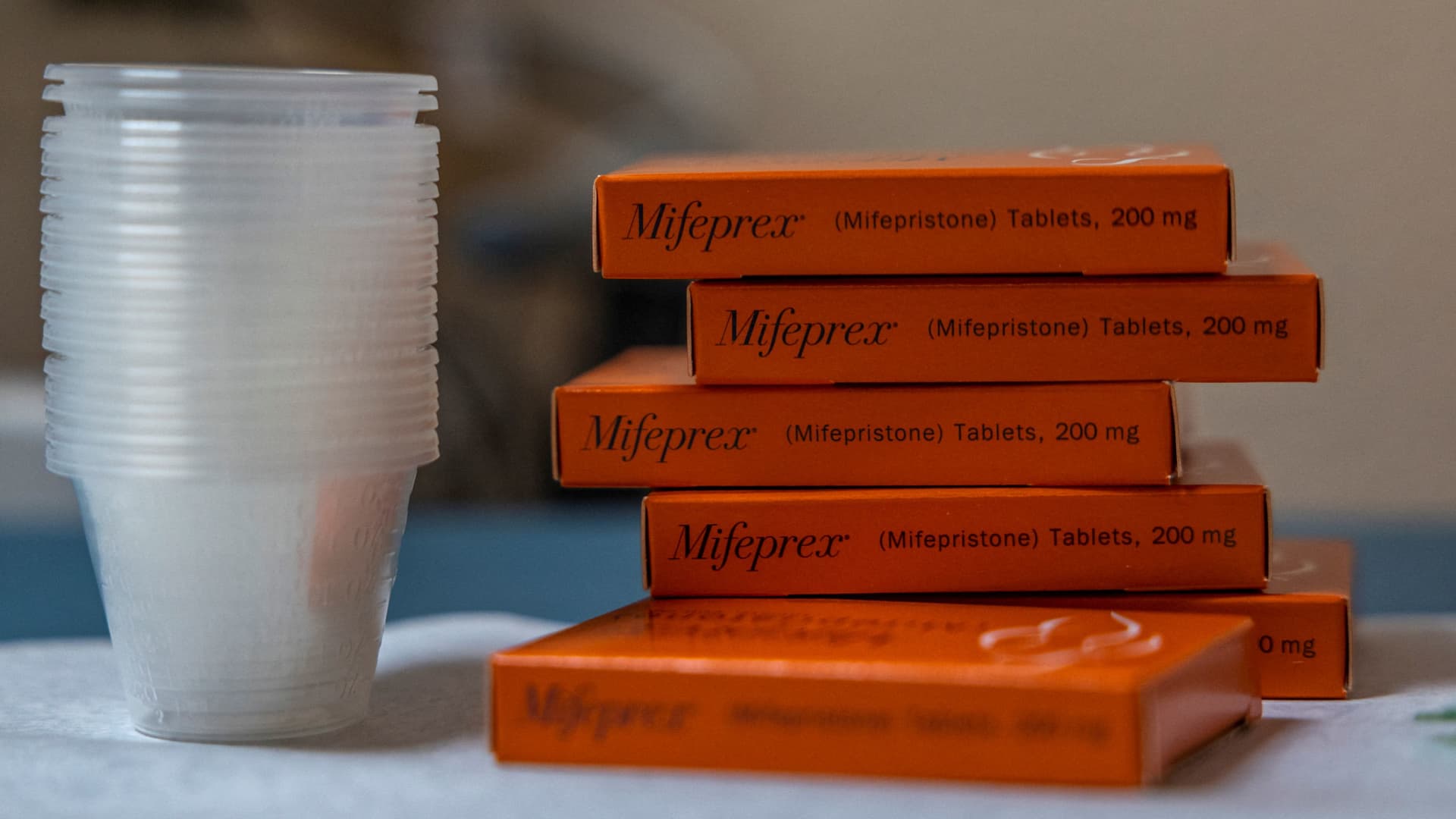
Boxes of mifepristone, the first pill given in a medical abortion, are prepared for patients at Women’s Reproductive Clinic of New Mexico in Santa Teresa, U.S., January 13, 2023.
Evelyn Hockstein | Reuters
A coalition of a dozen Democratic attorneys general sued the Food and Drug Administration on Friday to force the agency to drop all remaining restrictions on the abortion pill, the latest case in an escalating series of legal battles over access to the medication.
The attorneys general asked a federal court in the eastern district of Washington to declare that the abortion pill, mifepristone, is safe and effective and that all remaining restrictions on the medication are unconstitutional.
The lawsuit was led by Washington state Attorney General Bob Ferguson and Oregon’s AG Ellen Rosenblum. The attorneys general of Arizona, Colorado, Connecticut, Delaware, Illinois, Michigan, Nevada, New Mexico, Rhode Island and Vermont were also part of the suit.
The attorneys general also asked the court to prevent the FDA from taking any action that would remove mifepristone from the market or reduce its availability.
Used in combination with misoprostol, mifepristone is the most common method to terminate a pregnancy in the U.S., accounting for about half of all abortions.
The lawsuit filed Friday puts the FDA in the middle of the nation’s deep divisions over access to abortion in the wake of the Supreme Court ruling that overturned Roe v. Wade last summer.
A coalition of physicians who oppose abortion have sued the FDA in federal court in Texas to overturn the agency’s approval of mifepristone, which dates back more than 20 years, and yank the medication from the U.S. market.
The FDA approved mifepristone in 2000, but imposed restrictions on how the medication is dispensed. The agency has gradually eased those restrictions over the years, dropping an in-person dispensing requirement.
But there are still some regulations in place.
In January, the FDA allowed retail pharmacies to dispense mifepristone if they go through a certification process. The patient is required to have a prescription from a health-care provider who is certified under a federal program that monitors mifepristone.
Certified pharmacies can send the pill by mail, but they have to use shipping services that provide tracking information, according to FDA.
CVS and Walgreens have said they are going through the certification process, but they will only dispense mifepristone where it is legal to do so under both state and federal law. At least 12 states have banned abortion, with few exceptions, and other states have tighter restrictions on the medication than what the FDA requires.
Republican attorneys general have warned CVS and Walgreens against shipping mifepristone in their states.
Join CNBC’s Healthy Returns on March 29th, where we’ll convene a virtual gathering of CEOs, scientists, investors and innovators in the health care space to reflect on the progress made today to reinvent the future of medicine. Plus, we’ll have an exclusive rundown of the best investment opportunities in biopharma, health-tech and managed care. Learn more and register today: http://bit.ly/3DUNbRo
